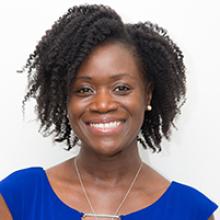National Institutes of Health Rapid Acceleration of Diagnostics – Underserved Populations (RADx-UP) Coordination and Data Collection Center (CDCC)
As the nation continues to respond to the COVID-19 pandemic, identifying effective strategies to improve access to COVID-19 testing is a public health priority, especially for vulnerable people. AIR is part of the team supporting the Rapid Acceleration of Diagnostics-Underserved Populations (RADx-UP) Coordination and Data Collection Center (CDCC) for the National Institutes of Health. The overarching goal of the RADx-UP initiative is to develop community-engaged projects across the United States to assess and expand COVID-19 testing for underserved and/or vulnerable populations, including health disparity populations, particularly African Americans and American Indians/Alaska Natives; those in nursing homes, jails, rural areas, or underserved urban areas; pregnant women; and people experiencing homelessness.
The CDCC involves experts in clinical trial management, community engagement, data science, and clinical research informatics working together to create a community-focused coordination and data collection center for RADx-UP grantees—more than 100 research partnerships between universities and community-based organizations across the country. AIR’s role in the CDCC is to:
- Use human-centered design to facilitate optimal data collection from RADx-UP grantees’ COVID-19 interventions and finalized and published a data visualization user guide to help program data reach a variety of stakeholders, including policymakers and community-based organizations;
- Provide Data Science support for the Data Science and Biostatistics workstream, by automating multiple processes via Azure logic app, and performing extract, transform and load of project metadata and national COVID-19 testing and vaccination data;
- Chair the Building Community Capacity and Impact working group and the Understanding Social Determinants of COVID-19 Testing and Vaccination working group, which involves RADx-UP grantees collaboratively identifying and developing solutions to support reductions in COVID-19 disparities;
- Facilitate sessions at the biannual Equity Evidence Academy, which uses an engaged conference approach to enable researchers and community and governmental leaders to share experiences, ideas, and recommendations to overcome disparities in COVID-19 testing; and
- Provide research support for the Community Engagement workstream within the RADx-UP CDCC via the Group Modeling Building/Systems Practice committee and Engagement Impact Teams.

